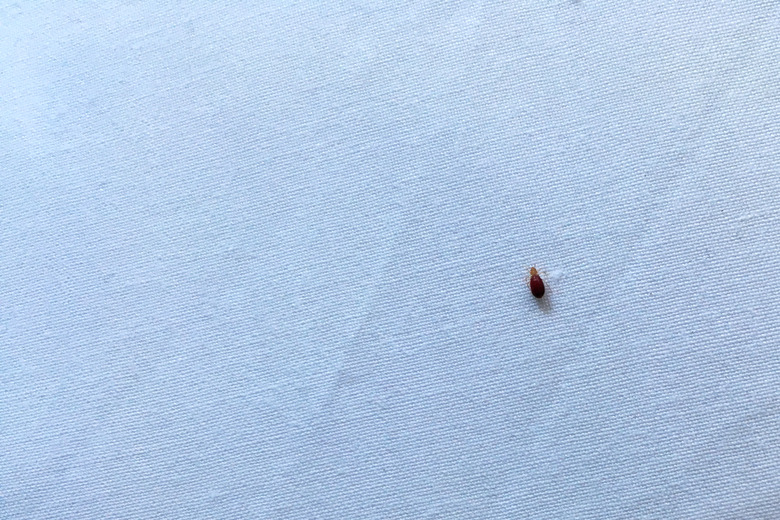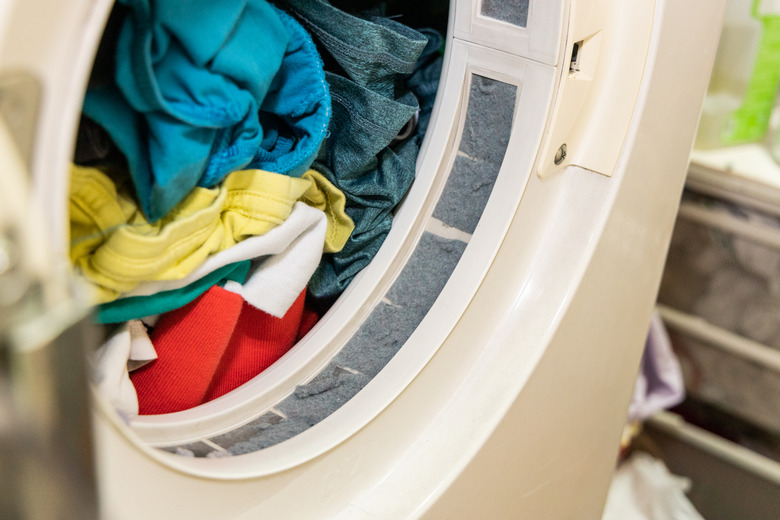Does Renter's Insurance Cover Bed Bugs?
When it comes to bed bugs, how they got into your apartment isn't as important as dealing with them as fast as possible. Renter's insurance doesn't generally cover bed-bug extermination costs, nor will it cover replacement of items discarded due to the infestation. In many cases, your landlord is responsible for actual inspection and extermination costs, but this varies regionally.
Tell the Landlord Immediately
Tell the Landlord Immediately
If you think bed bugs may be in your apartment, it's your duty to notify the landlord as soon as possible. Do this even if you haven't seen a live bed bug; suspicious clusters of bites on your torso or tiny eggs on your mattress are potential indicators of bedbugs. Notifying the landlord right away helps prevent the situation from getting worse and spreading to other units. Your landlord will hire an exterminator to inspect the premises, pinpointing the potentially affected areas. If an infestation is evident, the apartment and possibly the surrounding units will be exterminated.
If you live in a single-unit structure, such as a rented cottage, you might be responsible for the extermination costs, depending upon where you live. Check your local and state laws for specifics, as some go into great detail about bed-bug eradication. Some laws state that the landlord is required to foot the bills for extermination unless it's clear that a specific tenant's negligence caused the infestation. If it's your responsibility to foot the bill for extermination, expect to pay from $250 to $900 per room. Call around for quotes; some pest-control companies offer free inspections with or without extermination, while others charge up to $200 for the service.
Renter's Insurance: No Bed-Bug Coverage
Renter's Insurance: No Bed-Bug Coverage
Renter's insurance generally covers loss of property caused by situations such as fire, smoke, theft and water damage. Bed bugs aren't covered because insurers consider them a maintenance or cleanliness issue rather than an uncontrollable disaster. This means that your insurance won't cover the costs of replacing a mattress or luggage discarded after a bed-bug infestation. Don't worry about replacing everything in your bedroom or your suitcase, however. Most items, including mattresses, can be saved.
Salvaging What You Can
Salvaging What You Can
While your first instinct may be to throw everything away, it's not necessary. Items such as bedding and clothing can be placed in a dryer on the highest heat setting for 30 minutes to help kill any remaining bugs. Pillows that are dryer-safe can also be thrown in the dryer to eradicate the insects. Washing any of these items in hot water first is also a good idea, as long as they're able to handle a hot-water wash.
Vacuum furniture, empty luggage, your mattress and box spring thoroughly, then discard the vacuum bag or receptacle's contents, tying them in an airtight bag. Double-bag the item and tie the outer bag closed as well. Cover the mattress, box spring and bed pillows in special bed-bug-proof covers; these will help prevent any bed bugs remaining on those items from getting out. The covers also help prevent further infestation in and around your bed.
High-heat clothing steamers help kill off bed bugs in furniture and other areas that can't easily be sealed in covers or thrown in the dryer. Make sure the steamer heats water to above 212 degrees Fahrenheit. Use an infrared thermometer to ensure the steam is between 160 and 180 degrees while steaming every inch of the affected object. It may take several steam treatments to kill all the insects. The steam is hot enough to cause burns, so keep your face and fingers away from the steam. The items will be damp afterward; a box fan helps speed up the drying process.
Using Bed-Bug Interceptors
Using Bed-Bug Interceptors
Once you think you've remedied the problem, place bed-bug interceptors under the legs of the bed frame. An exterminator may also provide them. These cup-style devices allow bed bugs to climb in, but not out. Make sure no bedding hangs to the ground, as the bugs will climb the bedding instead. Using interceptors helps determine whether bed bugs are still present in an exterminated room.
When You Can't Salvage Property
When You Can't Salvage Property
In most cases, you should be able to keep everything affected by the infestation once the bugs have been exterminated. The only expenses you should face, as a renter, are the costs of replacing any items you feel can't thoroughly be cleaned. For instance, if you've taken your suitcase outdoors, cleaned it thoroughly but still notice bugs in the pockets, you may wish to replace the luggage rather than heat-treating every crevice within the bag. If you choose to discard and replace such an item, it's at your own expense.
Talk to Landlord and Exterminator
Talk to Landlord and Exterminator
After an extermination, check in with the landlord and the exterminator to find out what treatments were used. Some pest-control companies use the high-heat steam method, which kills both bed bugs and their eggs. Some use chemical treatments, while others use both heat and chemicals. Find out where each type of treatment was used. If toxins were used, you may wish to steam-clean carpets and furniture again. Your insurance won't cover this cost in most cases; your landlord probably won't either. Rent a high-powered carpet cleaner that "washes" the carpet and extracts the excess water; this helps remove chemical residue, dirt and even dead bed bugs. Rental prices vary, but expect to pay around $30 per day, plus a refundable deposit of $50 at a home-improvement center.
References
- State Farm: How to Get Rid of Bed Bugs
- Whitney LLP: Are Bed Bugs Covered by Renters Insurance?
- Environmental Protection Agency: Controlling Bed Bugs Using Integrated Pest Management
- Terminix: Can Bed Bugs Live in Pillows?
- Texas A&M Agrilife Extension: What is a Bed Bug Interceptor?
- Michigan State University: Keep Bed Bugs from Moving in After Travel
- Conair: Invasion of the Bed Bugs
- Bed Bugs: Bed Bug Exterminators



